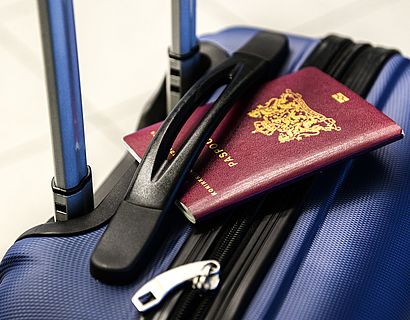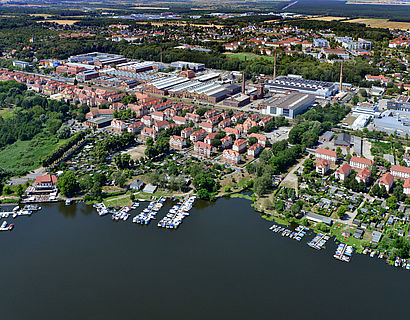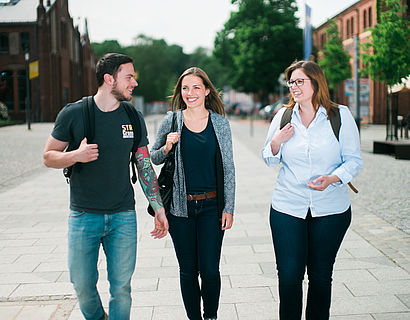Possibilities to finance your studies
Financing your studies is one of the biggest hurdles for international students. Even before you arrive in Germany, when applying for a visa, you have to prove that you have sufficient funds to finance your studies in Germany.
Many international students therefore look for a job in Germany and earn some extra money. Look for job offers for students at the university or in the notice boards on campus.
Working for international students in Germany is limited and depends on the type of residence permit you have. You can also apply for a scholarship.
Working during your studies
- International students from outside the EU or EEA are allowed to work 140 full or 280 half days per year.
- If you would like to work more than 140 full or 280 half days in a job, you will need permission from the Foreigners' Registration Office. The Foreigners' Registration Office must in turn obtain permission from the Federal Employment Agency. If you earn more than 556 euros per month, you must pay taxes.
- One exception, however, is work as an academic or student assistant: as long as your studies are not at risk, you can do this for an unlimited period of time. However, the Foreigners' Registration Office must still be informed if you want to work as a research or student assistant!
- There are stricter regulations for language course participants or students in study preparation programs than for regular international students. They are only allowed to work during vacations.
- International students from EU or EEA countries, as well as Switzerland, are allowed to work as much as they want alongside their studies without a special permit due to the free movement of workers. But be careful! Just like for students with a German passport, the 20-hour rule applies. If you work more than 20 hours per week, you must pay insurance contributions.
Internships
If you are not from the EU or EEA and complete an internship in Germany, this counts as regular work - even if the internship is unpaid! Each day of the internship is deducted from your 140-day credit.
For example, if you have already worked for 140 days, you must obtain the approval of the Immigration Office and the Employment Agency for an internship.
The only exceptions to this are internships that are a compulsory part of your studies.
Summary
|
Activity |
Time limit? |
Authorization? |
|
Dependent employment (e.g. in a restaurant) |
140 days or 280 half days per year |
No, unless worked more than 140 days / 280 half days per year |
|
Student part-time employment |
No |
No, but information to the responsible immigration authority |
|
Compulsory internships |
No |
No |
|
Voluntary internships |
140/280-day rule |
No, unless worked more than 140 days / 280 half days per year |
Cost of living
The cost of living is comparable to other (Western) European countries. You should have around 992 euros per month available for accommodation and utilities.
Your cost of living will depend on your lifestyle. Your monthly expenses could look something like this:
|
Rent in a hall of residence (incl. utilities) |
160 - 330 EUR |
|
Rent shared flat (Berlin/Brandenburg) |
200 - 500 EUR |
|
Rent one-room apartment (Berlin/Brandenburg) |
350 - 600 EUR |
|
Semester fee (incl. ticket for public transportation in Germany) |
~ 350 EUR (per semester) |
|
Food |
160 EUR |
|
Lunch in the canteen |
3 - 5 EUR |
|
Dinner out |
10 - 20 EUR |
|
Coffee |
2 - 4 EUR |
|
Beer |
3 - 5 EUR |
|
Loaf of bread |
~ 1 - 2 EUR |
|
Bottle of mineral water (1.5l) |
~ 0.50 - 1.50 EUR |
|
Milk (1l) |
~ 0,50 - 1,50 EUR |
|
Coca Cola (1l) |
~ 1,50 EUR |
|
Health insurance |
~ 110 EUR |
|
Telephone, radio-TV fees, internet |
30 EUR |
|
Leisure, culture, sport |
100 EUR |
|
Cinema ticket (student rate) |
~ 8 - 15 EUR |




